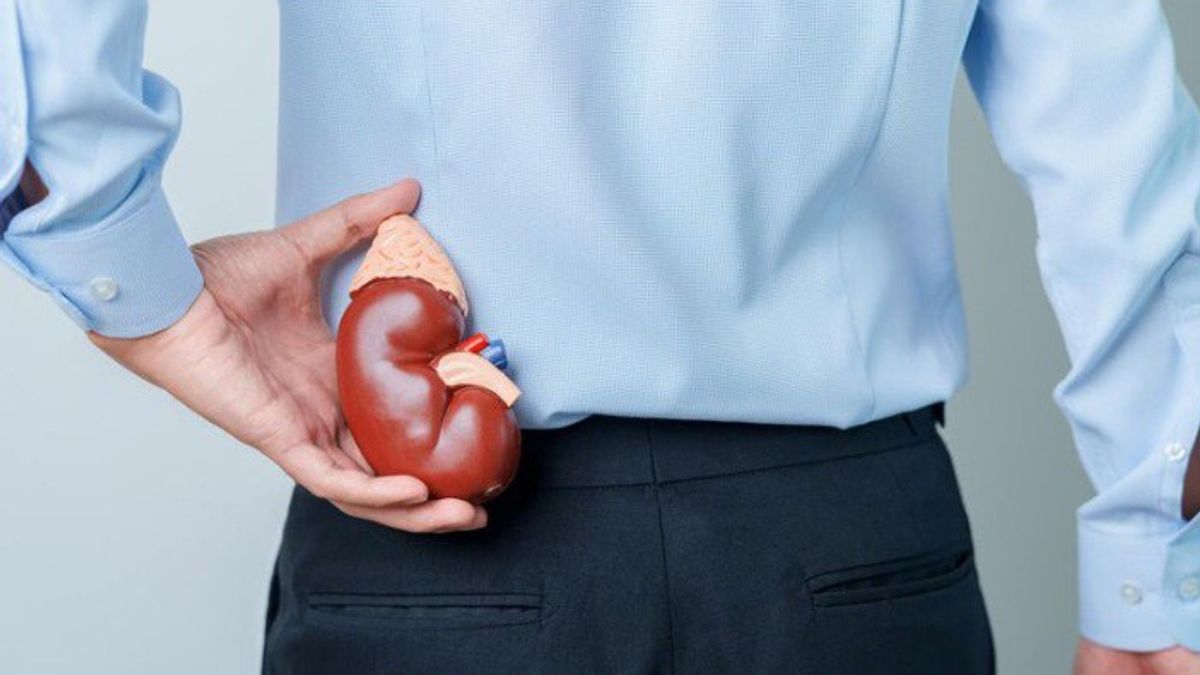YOGYAKARTA - The kidneys are one of the vital organs in the body that must be maintained. In addition to conducting examinations at health facilities, you can check your kidney condition independently. Therefore, it is important for everyone to know how to check their own kidneys.
Kidneys are important organs in the body that function to screen waste and toxins from the blood, regulate body fluids, and maintain an electrolyte balance. Having a healthy kidney is very important so as not to experience problems or diseases. It should be noted that kidney disorders can cause serious health problems.
There are some initial signs and simple methods that we can do ourselves to monitor kidney condition. So how to guide or check your own kidneys as a first step to maintain the health of this important organ.
Here are some ways to check your kidney health independently that you can do:
One of the easiest ways to monitor kidney condition is to pay attention to urine frequency and color. Healthy kidneys usually produce light or clear yellow urine.
If urine looks dark or turns brown or red, it could be a sign of kidney problems. In addition, if you often urinate, especially at night or rarely urinate, this could be a sign that the kidneys don't work well.
Troubled kidneys often cause the body to hold back fluids that can lead to swelling, especially in areas such as feet, ankles, hands, and faces. This swelling occurs because the kidneys are not able to filter excess fluids properly so that the fluid accumulates in the body's tissue.
How to check it is by gently pressing the ankle or hand. If the area feels swollen and when pressed the marks don't return quickly, then there is a possibility that the fluid is stuck in the body. Also pay attention to whether the face looks more swollen than usual, especially around the eyes.
Unhealthy kidneys can cause a buildup of toxins in the body. This can affect skin conditions. Itching, dry skin, or rashes are some signs that there may be problems with kidney function. The buildup of toxins that should be screened by the kidneys can cause reactions in the skin.
Note, if the skin feels drier or a rash appears that is unusual then you need to be aware of kidney health. If you often experience itching in certain areas without a clear cause and not disappear after a few days, this may indicate problems with the kidneys.
Kidneys have an important role in regulating blood pressure. If the kidneys do not function properly, then blood pressure can increase. Uncontrolled hypertension is one of the main causes of kidney damage. High blood pressure can also be a sign of kidney problems.
Regular blood pressure monitoring can help you detect kidney function disorders early. Use a blood pressure measuring device that can be purchased at a pharmacy or perform a site that provides this facility. Make sure the blood pressure is in the normal range, which is around 120/80 mmHg.
SEE ALSO:
Unhealthy kidneys can cause hemoglobin levels in the blood to decrease due to disorders in the production of the hormone erytropyetin. This causes anemia that can make you feel tired or weak constantly even though you have enough rest.
Prolonged fatigue without a clear cause can be an indication of problems with the kidneys. Pay attention to your daily energy levels. If you feel tired too much or weak for no apparent reason or if you feel dizzy periodically, this could be a sign of kidney disorders.
Troubled kidneys can also cause ammonia breathing or metal flavor in the mouth. If you are aware of an unusual odor in the breath or bitter taste in the mouth, this could indicate that the kidneys do not work optimally in screening the poison.
How to check it is by taking a deep breath and observe if there is an unusual odor that comes from your breath. If you feel a metal or bitter taste in your mouth, and if this happens quite often, then it may need to be considered further.
For more accurate examinations, you can do a simple urine test at home using a dipstick available at the pharmacy. Dipstick is a test tool that can detect the presence of protein or blood in urine. This condition can be an early sign of problems with the kidneys.
How to use a dipstick, namely by dipsticking into urine. Then check the color change in the indicator. If the tool shows any protein or blood, immediately consult a doctor for further examination.
Those are some ways to check your own kidney that you can do at home to monitor kidney health. If you find suspicious symptoms, immediately do a further examination so that you can get the right treatment from an early age. Also read drinks and kidney sanitizer foods.
Stay up to date with the latest domestic and other overseas news on VOI. We present the latest and updated information nationally and internationally.
The English, Chinese, Japanese, Arabic, and French versions are automatically generated by the AI. So there may still be inaccuracies in translating, please always see Indonesian as our main language. (system supported by DigitalSiber.id)


















